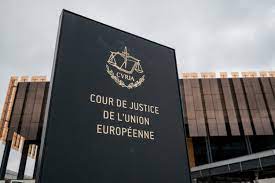The EU’s competition watchdogs made an appeal to the EU’s top court on Tuesday to overrule a lower court and order Apple to pay a record $14.3 billion in Irish back taxes.
The case is the most prominent in EU antitrust head Margrethe Vestager’s battle against preferential agreements between multinational corporations and European Union governments, and it has significant ramifications for corporate tax obligations.
According to Commission attorney Paul-John Loewenthal, “its outcome will determine whether member states may continue to grant multinational substantial tax breaks in exchange for jobs and investments.”
In a 2016 verdict, the European Commission stated that two Irish tax rulings had unduly decreased Apple’s tax burden for more than 20 years, which was as low as 0.005% in 2014.
In 2020, the General Court ruled that regulators had not upheld the burden of proof necessary to establish that Apple had benefited unfairly.
However, Loewenthal informed the Court of Justice judges that the decision was “legally flawed” and ought to be overturned.
Apple disputed the Commission’s claims, claiming that it had paid the proper country’s fair share of taxes.
“The profits we are talking about – the profits the Commission said should be attributed to these branches in Ireland – those profits were in fact subject to the U.S. tax regime,” Daniel Beard said in a statement before the Court.
He added, “Apple established reserves for the payment of those U.S. taxes and is currently paying approximately 20 billion euros in tax in the U.S. on those very same profits that the Commission says should have been taxed by Ireland.”
Apple has paid the taxes owed in accordance with Irish tax law.
The EU competition enforcer has recently lost court battles against the automaker Stellantis, Amazon, and Starbucks, but in September, the CJEU sided with the enforcer in a case involving a Belgian tax exemption that involved a number of international corporations.
Nevertheless, Vestager has compelled Luxembourg, the Netherlands, and Ireland to abandon contentious tax regimes and has supported the global campaign for more equitable corporation tax rates.
On November 9, the Court’s decision will be followed by a non-binding opinion from CJEU Advocate General Giovanni Pitruzzella.
On Tuesday, the case C-465/20 P Commission v. Ireland and Others will be heard.

















